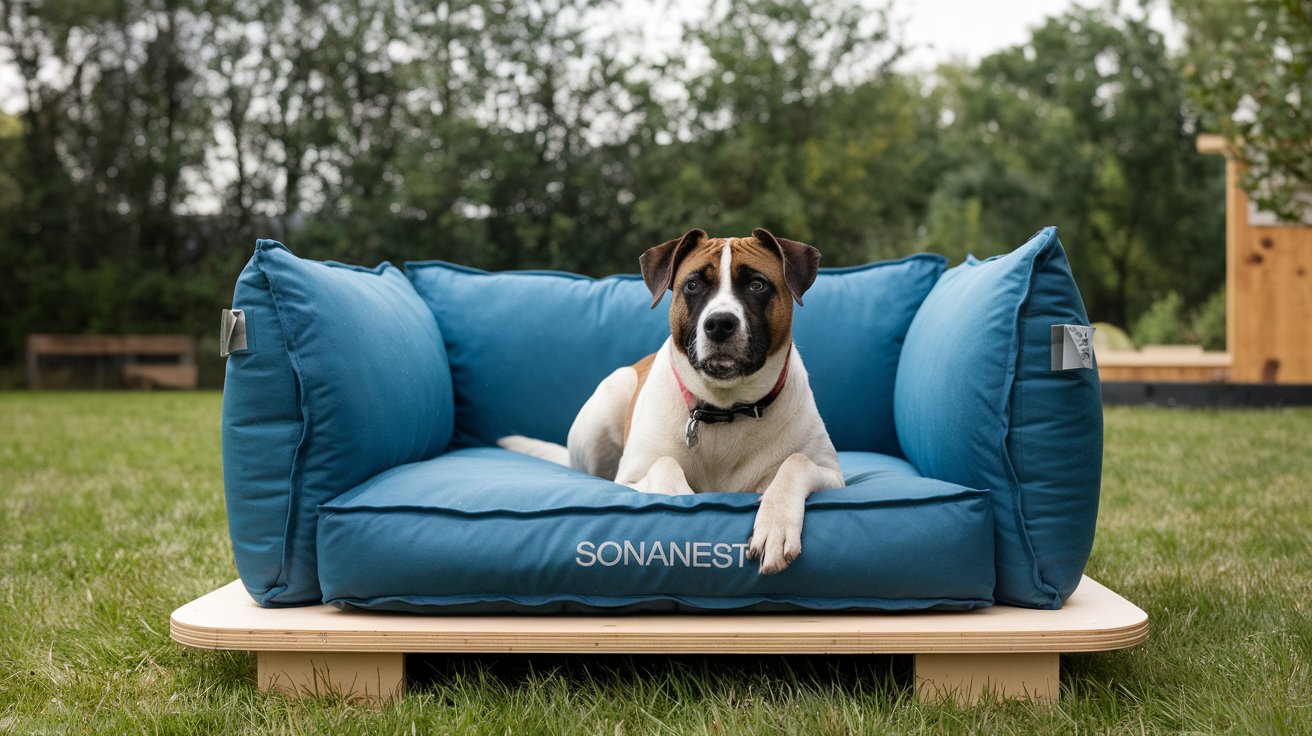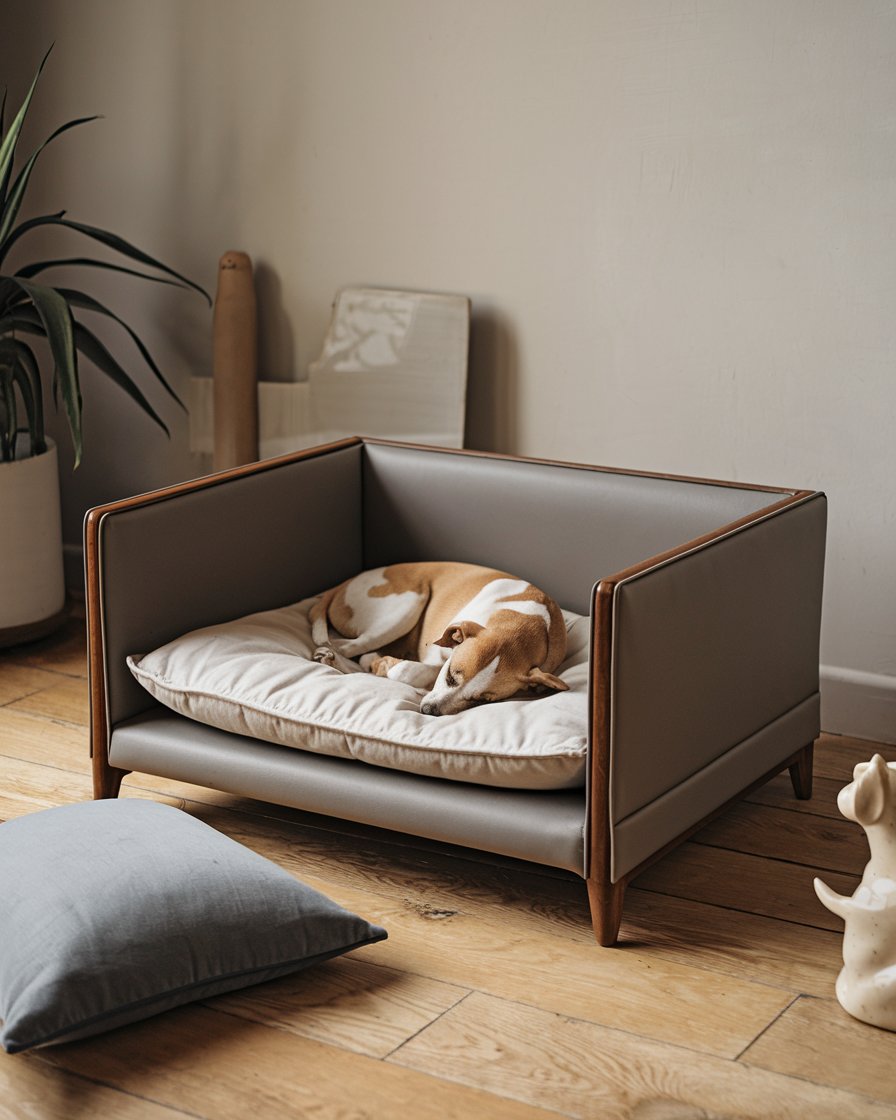Anxiety is one of the most common challenges pet owners face. Whether it’s triggered by loud noises, separation, or unfamiliar environments, anxiety can significantly impact your pet’s quality of life. While medication is an option for severe cases, many natural remedies offer gentle, effective ways to help your pet feel calm and secure.
Why Choose Natural Remedies for Pet Anxiety?
Natural methods work by addressing the root causes of anxiety rather than simply masking symptoms. They’re safe, non-invasive, and often integrate seamlessly into your pet’s daily routine. Benefits include:
- Fewer side effects compared to medication.
- A holistic approach that supports emotional and physical well-being.
- The ability to create a long-term sense of calm without dependency.
1. Create a Safe, Calming Space
Having a designated area where your pet can retreat during stressful moments provides a sense of security.
- Choose a Quiet Spot: Select a low-traffic area in your home, away from loud noises or disturbances.
- Add Comfort: Use a soft bed like SonaNest, which combines ergonomic support with calming features such as gentle vibrations and sound therapy.
- Include Familiar Items: Blankets or toys with your pet’s scent can make the space more inviting and reassuring.
2. Incorporate Sound Therapy
Sound therapy is a proven method to ease anxiety in pets.
- Subsonic Frequencies: These low-frequency vibrations, featured in SonaNest, help lower stress levels by mimicking soothing natural sounds.
- White Noise: Playing white noise can mask external sounds like thunderstorms or fireworks, reducing your pet’s reactivity.
- Nature Sounds: Gentle rain or ocean waves create a tranquil ambiance that encourages relaxation.
3. Use Aromatherapy
Certain scents have calming properties that can help pets feel more at ease.
- Lavender and Chamomile: These pet-safe essential oils are known for their soothing effects.
- How to Use: Place a diffuser in their space or spray lightly on bedding, ensuring it’s diluted and safe for animals.
- Caution: Always consult your veterinarian before introducing essential oils, as some can be harmful to pets.
4. Maintain a Consistent Routine
Predictability reduces stress by giving your pet a sense of control over their environment.
- Feeding Times: Serve meals at the same time every day.
- Exercise Schedule: Include daily walks or play sessions at consistent intervals.
- Bedtime Ritual: Establish a calming routine before sleep, such as light grooming or a cuddle session.
5. Engage Their Mind
Mental stimulation distracts pets from stress triggers and redirects their energy.
- Interactive Toys: Puzzle feeders and treat-dispensing toys challenge their problem-solving skills.
- Training Games: Teach new tricks or practice obedience commands to strengthen focus and confidence.
6. Try Massage and Gentle Touch
Physical touch releases oxytocin, a hormone that promotes relaxation and bonding.
- Massage Techniques: Gently rub areas like the neck, shoulders, or base of the tail, where pets hold tension.
- Calming Petting: Slow, steady strokes along their back can help lower their heart rate and soothe anxiety.
7. Provide Natural Supplements
Certain supplements can support your pet’s emotional balance without requiring medication.
- CBD Oil: Known for its calming effects, CBD can reduce anxiety in many pets.
- L-Theanine: Found in green tea, this amino acid helps promote relaxation.
- Probiotics: A healthy gut can improve mood and reduce stress levels.
Always consult your veterinarian before introducing new supplements to your pet’s diet.
8. Stay Calm Yourself
Pets are highly attuned to their owner’s emotions. If you’re stressed, they’re more likely to feel anxious too.
- Practice Calm Behavior: Speak softly, move gently, and avoid projecting your stress.
- Be Present: Spend quality time with your pet during stressful moments to reassure them.
When to Seek Professional Help
While natural remedies are effective for mild to moderate anxiety, severe cases may require additional support. Consult your veterinarian if:
- Your pet’s anxiety disrupts their eating, sleeping, or overall quality of life.
- They exhibit aggressive or destructive behaviors.
- Natural methods don’t seem to reduce their stress.
A veterinarian may recommend behavior training, medications, or a combination of approaches tailored to your pet’s needs.
How SonaNest Enhances Natural Anxiety Relief
SonaNest beds are designed to integrate seamlessly with natural anxiety remedies. Key features include:
- Calming Sound Therapy: Subsonic vibrations soothe stress without requiring intervention.
- Ergonomic Comfort: Provides a safe, cozy space for pets to relax.
- Stylish Design: Fits beautifully into your home, making it easy to create a calming environment.
Final Thoughts
Reducing pet anxiety doesn’t have to be complicated or invasive. By incorporating natural remedies and creating a supportive environment, you can help your furry friend navigate stress with confidence and calm.
At SonaNest, we’re passionate about helping pets live happier, more peaceful lives. With thoughtful solutions and caring advice, we’re here to support you every step of the way.





 No products in the cart.
No products in the cart. 